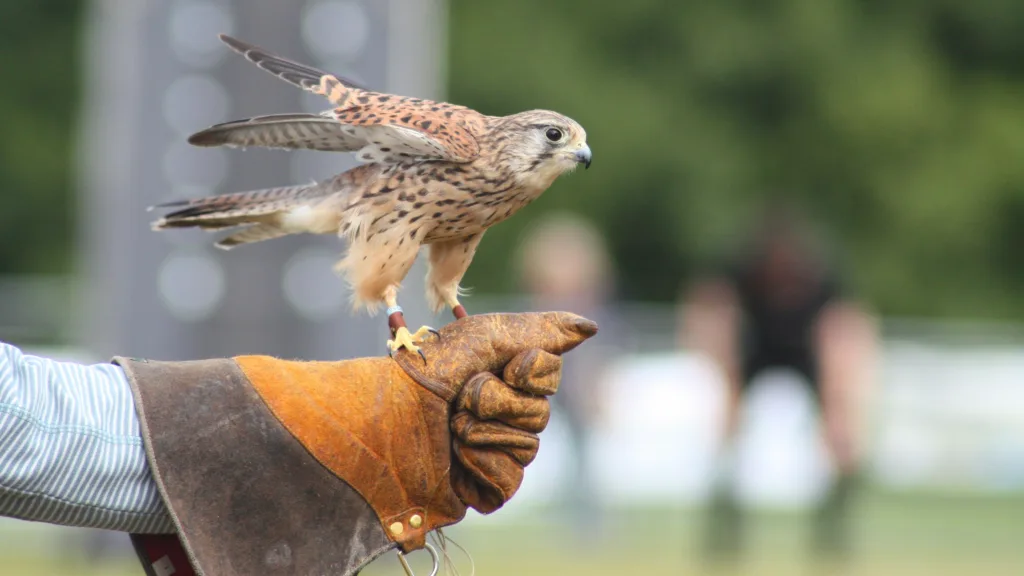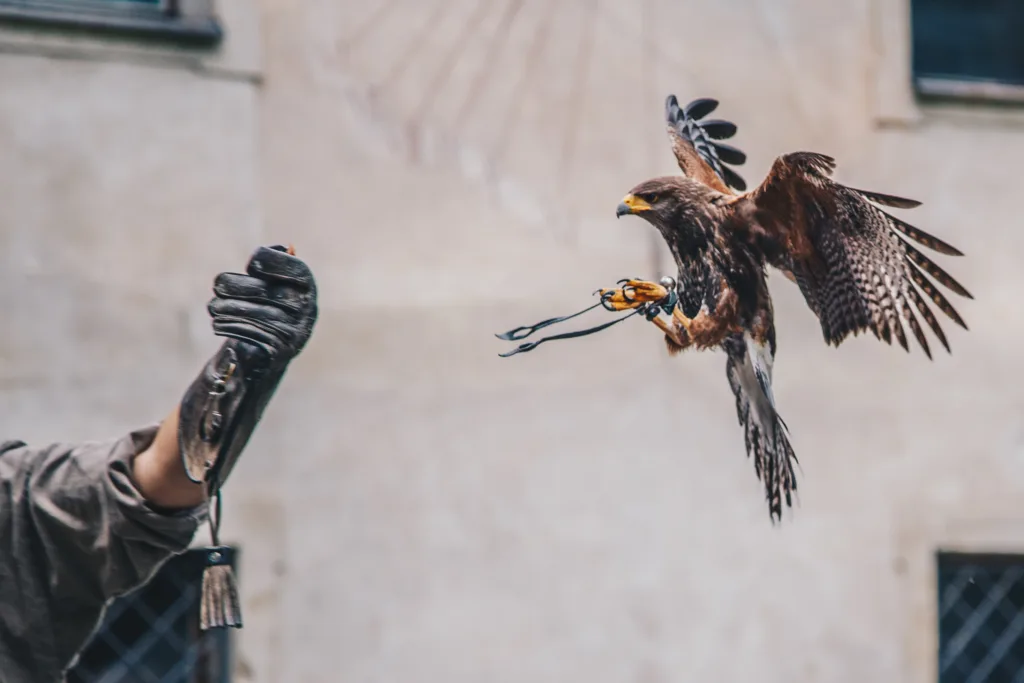Falconry is an ancient sport that involves the use of a trained bird of prey, such as a falcon, to hunt small game. While falconry is heavily regulated in the United States, it is legal in every state except Hawaii and requires a state and federal hunting license to participate.
If you are interested in becoming a falconer and training your own pet falcon, there are several steps you must take to obtain the necessary licenses and begin the training process.
First and foremost, you must pass a written test that covers information on raptor care, training, and veterinary needs. This test is required for both state and federal hunting licenses, and passing it demonstrates that you have a thorough understanding of the sport and the responsibilities of caring for a bird of prey.
Once you have passed the written test, you must become an apprentice to a master falconer who agrees to sponsor you. This apprenticeship typically lasts for two years and involves hands-on training and guidance from an experienced falconer. During this time, you will learn how to care for and train your falcon, as well as the ethics and regulations that govern the sport.
As you progress through your apprenticeship, you will gradually begin to take on more responsibilities and gain more experience in handling and training your falcon. Eventually, you will be eligible to take the practical exam that is required for your state hunting license.
Training a pet falcon is a rewarding and challenging experience that requires patience, dedication, and a willingness to learn. Falcons are intelligent and highly adaptable birds, and with proper care and training, they can become excellent hunting companions.
When selecting a pet falcon, it is important to choose a bird that is healthy and well-suited to the environment in whih it will be trained. Falcons are typically raised in captivity and can be purchased from specialized breeders or falconry facilities.
In addition to providing proper care and training for your pet falcon, it is also important to follow all state and federal regulations governing the sport of falconry. These regulations are in place to protect the birds and ensure that the sport is practiced at its highest levels.
Training a pet falcon is a challenging and rewarding experience that requires a thorough understanding of the sport of falconry and a commitment to proper care and training. With patience and dedication, anyone can become a skilled falconer and enjoy the unique bond that comes with training a bird of prey.
Can You Own A Falcon As A Pet?
It is illegal to own a falcon as a pet in many countries, including the United States. Falcons are birds of prey and are protected under the Migratory Bird Treaty Act. In order to legally own a falcon, one must obtain a special permit from the government, which requires extensive training and experience in falconry. Even then, falcons are not considered pets but rather working animals used for hunting. It is important to note that owning a falcon is a serious responsibility and requires a significant investment of time, effort, and resources.

Can I Raise A Falcon?
You can raise a falcon, provided that you obtain the necessary permits and licenses. Falconry is a highly regulated sport, and you must have a state and federal hunting license to own and hunt with a bird of prey. Moreover, to becme a falconer, you need to pass a written test that covers topics such as raptor care, training, and veterinary needs. Once you pass the test, you must serve as an apprentice to a master falconer who sponsors you. During your apprenticeship, you will learn how to train and care for a bird of prey, including feeding, housing, and handling. You will also learn how to hunt with your bird and how to ensure its safety and well-being. It is essential to note that raising a falcon requires a significant commitment of time, effort, and resources, and it is not suitable for everyone. If you are interested in falconry, you should research the requirements and responsibilities involved and consult with experienced falconers before making a decision.
Can You Tame A Falcon?
It is possible to tame a falcon through a process known as falconry. However, it is important to note that falcons are not domesticated animals and therefore cannt be fully tamed like a pet. Instead, falconry involves building a relationship of trust and respect between the falcon and its handler, where the bird willingly works with the handler in exchange for food rewards and positive reinforcement. This process requires patience, dedication, and a deep understanding of the bird’s behavior and needs. It also requires obtaining the necessary licenses and permits from local and federal authorities, as falconry is a highly regulated sport. With the right training and commitment, it is possible to successfully train and work with a falcon.
Is Falconry Legal In The US?
Falconry is legal in the United States, excpt for the state of Hawaii. However, it is important to note that the sport is heavily regulated to ensure the safety and well-being of the birds and to maintain the highest standards of practice. Both federal and state regulations are in place to guide the sport, and these regulations vary depending on the state. Falconers must obtain permits and licenses, follow strict training and testing requirements, and adhere to guidelines for the care and handling of their birds. the regulations in place are intended to protect both the birds and the sport of falconry.

Conclusion
Owning a pet falcon can be a truly unique and rewarding experience. However, it is important to understand that falconry is a highly regulated and demanding sport, and obtaining the necessary licenses and training can be a lengthy process. Additionally, caring for a bird of prey requires a significant amount of time, effort, and financial resources. It is important to carefully consider the responsibilities and commitment involved before deciding to take on this endeavor. If you are willing to put in the effort, falconry can be an incredibly rewarding and fulfilling experience for both you and your bird.
